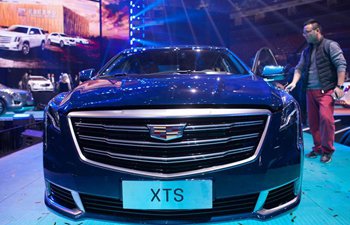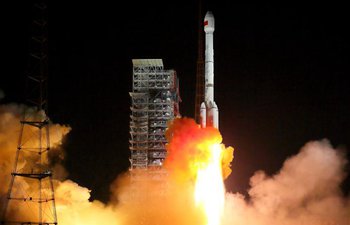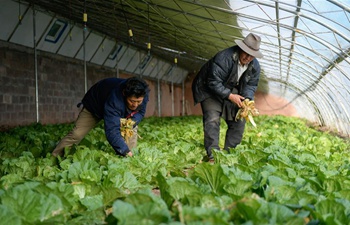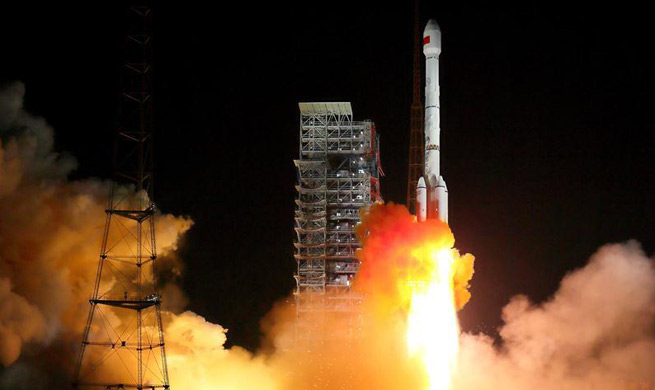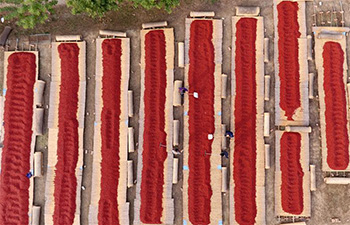LOS ANGELES, Nov. 5 (Xinhua) -- "It is in our nation's best interest to continue to work closely with China, while respecting each other's significant cultural and political differences," Bob Huff, CEO of California-based think tank Huff Strategies, said Saturday.
The relationship between the United States and China is very important to both countries and the world, Huff, a former California State Senate Minority Leader and former Senate Republican Leader, said in an interview with Xinhua.
"I don't presume to tell the president of the United States how to conduct the nation's business, but the facts are pretty clear. The United States and China are the world's two largest economies," he said ahead of U.S. President Donald Trump's first official visit to China scheduled for Nov. 8-10.
Huff, a 64-year-old political veteran who has visited China 18 times over the past 20 years, said: "We have had a good, working relationship since (former President Richard) Nixon went to China in the 1970s ... China's economic growth and stability has benefited the United States and the world."
Huff, who will make his 19th visit to China this month, said he is focusing on economic cooperation, which is a firm foundation for the bilateral ties.
"My most profound impressions (during the China visits) were of the continuity of history, love of education, and great cultural heritage," he said. "China has changed dramatically in the past two decades since I first visited it, consistently growing and changing. This trip is focused on bilateral trade between California and China."
China is California's third largest export destination, with an export volume of approximately 14.4 billions U.S. dollars in 2016. Growth of Chinese imports created more job opportunities in the state.
The Los Angeles Times reported that 60 percent containers that land at the Port of Los Angeles in southwestern California, the nation's largest port, come from China. Millions of those containers were transported by more than 32,000 longshoremen, terminal operators, truck drivers and rail workers in 2015.
In 2015, Chinese investment to U.S. companies reached a record 15.7 billion dollars, according to a report by the nonprofit National Committee on U.S.-China Relations and research firm Rhodium Group. California alone pulled in 21 percent of that haul.
Moreover, Chinese investment to California is very diversified, mostly in innovative or labor-intensive industries or both.
Huff is optimistic about the future of bilateral trade even though some local businessmen are worried that the Trump administration could have trade frictions with Beijing.
"Trade between countries is governed by international law, which is set by federal policies. I don't see a full-blown trade war resulting from this visit or this presidency," he said.
"Both President Xi (Jinping) and President Trump have had excellent results this year. They met very quickly after President Trump was inaugurated... came up with a hundred-day plan... (and) have seen things moving forward. So people have to focus on things actually being done, not just what's talked about. We've seen the right kind of actions. So I'm encouraged," he said.
President Xi told California Governor Jerry Brown in Beijing in June that he hoped California could continue to promote bilateral exchanges between localities and contribute more to China-U.S. cooperation in areas including technology, innovation and green development.
Brown, who has worked with Huff on many local issues in Sacramento, California's capital city, before the latter retired from California State Senate last year, said in the meeting that California was willing to join the construction of the Belt and Road, and was looking forward to a stronger cooperative relationship with China in trade, investment, clean technology and environmental protection.
The Belt and Road Initiative, proposed by Xi in 2013, envisions reviving the ancient Silk Trade routes through an overland Silk Road Economic Belt and 21st-Century Maritime Silk Road that will connect Asia, Europe and Africa, boosting connectivity, trade and people-to-people links.




